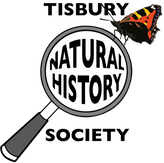|
Mark Elliott of the Devon Wildlife Trust gave a fascinating talk to the Society’s February meeting on the reintroduction of beavers into the UK, based on his experience as leader of the Trust’s project on the River Otter in south Devon.
As he explained, beavers are a species native to Britain that were hunted to extinction roughly 400 years ago. As they are no longer regarded as ‘ordinarily resident’ they can only be released into the countryside with a licence; but things are changing now, as a result of the success of the Devon trials. Last August DEFRA confirmed that the River Otters trial had been sufficiently successful for the beavers to stay indefinitely, and support will now be provided for similar managed projects elsewhere. This outcome could not have been foreseen at the start of the Devon programme back in 2015. Mark showed us how these semi-aquatic rodents had interacted with the environment on the Otter, showing how the population had grown and migrated along the river catchment over the period since then. From two founding family groups the number had grown to around 13 territories in 2019. At the outset Mark dispelled the popular misconception beavers eat fish; they are strict vegetarians. And he showed the results of work carried out by the Universities of Exeter and Southampton to measure the beaver’s impacts on fish and other wildlife. The increased variety of habitats that result from the beavers’ dams (that periodically get washed away and then rebuilt) have led to enhanced fish populations of all types and sizes, and the wetlands that result are ideal breeding and feeding grounds for frogs and for wildfowl. The water storage capacity of the river catchment has increased, and water quality downstream has improved, with lower levels of sediment, nitrogen and phosphorus downstream of the beavers than in the upstream input, and an increase in the concentration of dissolved carbon. He didn’t disguise occasional problems that have resulted from damage to crops of sweetcorn and flooding of adjacent grazing land, but showed how these can be managed effectively. Overall the experience in Devon is that the beavers are popular and, if the initial introduction is managed wisely, can exist alongside the human population to provide benefits to our environment. You can read more about the Devon beaver population and Mark Elliott’s ongoing work by visiting: www.devonwildlifetrust.org/what-we-do/our-projects/river-otter-beaver-trial Dick Budden Comments are closed.
|
Photo: Avocets (Izzy Fry)
The headers display photos taken by our members. Do get in touch via the Contact Form if you'd like to submit a photo for selection.
Archives
May 2024
Categories
All
|

 RSS Feed
RSS Feed